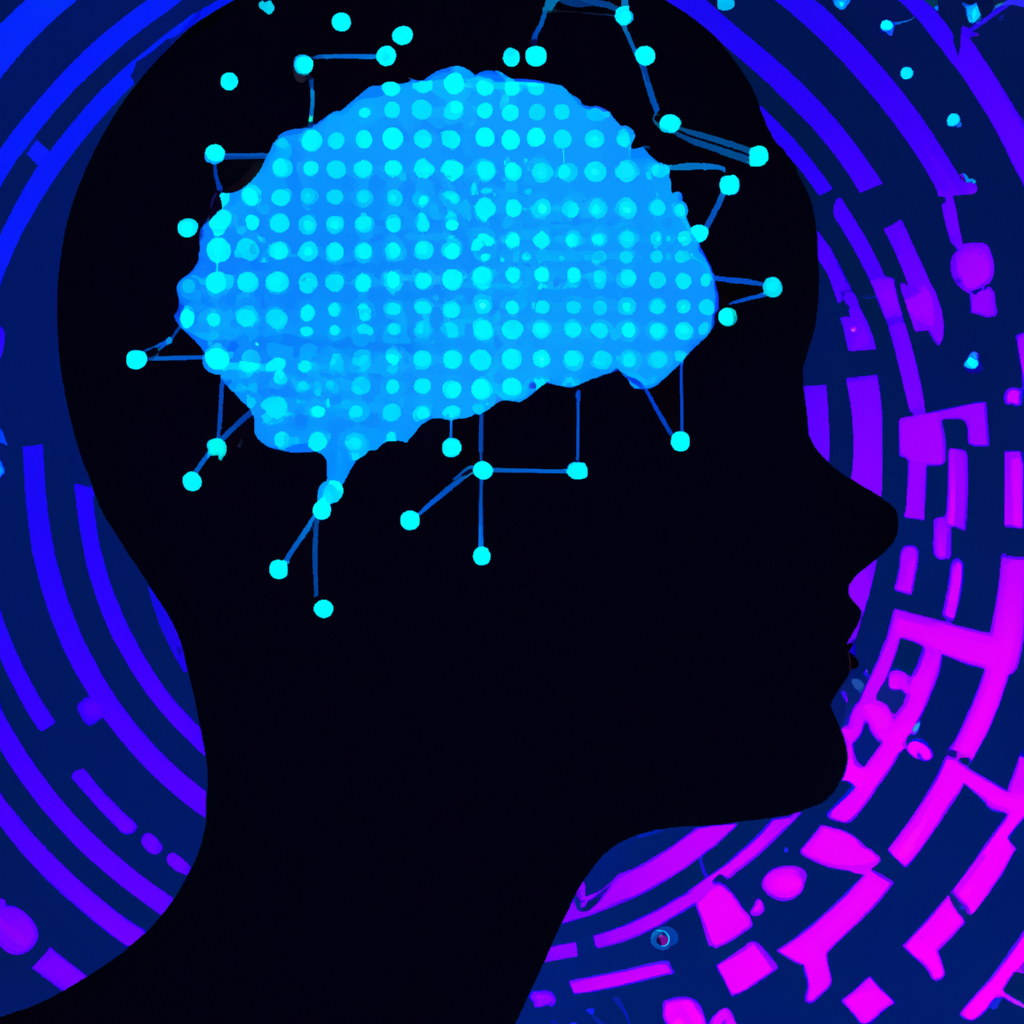-
Table of Contents
“Unlock the Future: Experience the Emergence of Artificial Intelligence!”
Introduction
The emergence of Artificial Intelligence (AI) has been a topic of fascination for decades, with its roots in science fiction and its potential to revolutionize the way we live and work. AI has the potential to automate mundane tasks, improve decision-making, and even create new products and services. AI is already being used in a variety of industries, from healthcare to finance, and its potential is only beginning to be explored. This article will explore the history of AI, its current applications, and its potential future.
How AI is Transforming the Way We Live and Work
AI is transforming the way we live and work in ways that were unimaginable just a few years ago. From virtual assistants to self-driving cars, AI is making our lives easier and more efficient.
AI is being used in a variety of ways to make our lives easier. Virtual assistants like Alexa and Siri can help us with tasks like setting reminders, playing music, and even ordering groceries. AI-powered chatbots are being used to provide customer service, and AI-driven facial recognition technology is being used to improve security.
AI is also transforming the way we work. AI-driven automation is being used to streamline processes and increase efficiency. AI-powered analytics are being used to make better decisions and improve customer service. AI-driven machine learning is being used to create more accurate predictions and forecasts.
AI is also being used to create new jobs. AI-driven automation is creating new roles in areas like data science and machine learning. AI-powered analytics are creating new roles in areas like marketing and customer service. AI-driven machine learning is creating new roles in areas like finance and healthcare.
AI is transforming the way we live and work in ways that were unimaginable just a few years ago. From virtual assistants to self-driving cars, AI is making our lives easier and more efficient. AI is also creating new jobs and opportunities, and it’s only going to become more important in the years to come.
The Impact of AI on Businesses and Industries
The impact of artificial intelligence (AI) on businesses and industries is undeniable. AI has the potential to revolutionize the way we do business, from automating mundane tasks to providing insights into customer behavior. AI can help businesses increase efficiency, reduce costs, and improve customer service.
AI can automate mundane tasks, such as data entry and customer service. This can free up employees to focus on more important tasks, such as developing new products and services. AI can also be used to analyze customer data and provide insights into customer behavior. This can help businesses better understand their customers and tailor their products and services to meet their needs.
AI can also help businesses reduce costs. AI-powered automation can reduce the need for manual labor, which can help businesses save money on labor costs. AI can also be used to optimize processes, such as supply chain management, which can help businesses reduce costs and increase efficiency.
AI can also help businesses improve customer service. AI-powered chatbots can provide customers with quick and accurate answers to their questions. AI can also be used to analyze customer data and provide personalized recommendations to customers. This can help businesses better understand their customers and provide them with the products and services they need.
In short, AI has the potential to revolutionize the way businesses operate. AI can help businesses automate mundane tasks, reduce costs, and improve customer service. AI can also provide insights into customer behavior, which can help businesses better understand their customers and provide them with the products and services they need.
The Ethical Implications of AI
The use of Artificial Intelligence (AI) is becoming increasingly prevalent in our lives, and with it comes a range of ethical implications. AI is a powerful tool that can be used to automate processes, improve decision-making, and even create new products and services. However, it also raises a number of ethical questions.
One of the most pressing ethical issues is the potential for AI to be used to discriminate against certain groups of people. AI algorithms can be trained to recognize patterns in data, and if those patterns are biased, the AI may make decisions that are unfair or discriminatory. This could lead to people being denied access to services or opportunities based on their race, gender, or other characteristics.
Another ethical issue is the potential for AI to be used to invade people’s privacy. AI algorithms can be used to collect and analyze large amounts of data, and this data can be used to make decisions about people without their knowledge or consent. This could lead to people being denied services or opportunities based on their personal data, or even being targeted for marketing or other purposes without their knowledge.
Finally, there is the potential for AI to be used to manipulate people’s behavior. AI algorithms can be used to create personalized experiences that are designed to influence people’s decisions and behavior. This could lead to people being manipulated into making decisions that are not in their best interests, or that are not in line with their values and beliefs.
These are just a few of the ethical implications of AI, and it is important to consider them when developing and using AI technologies. It is also important to ensure that AI algorithms are designed and implemented in a way that is fair and ethical, and that takes into account the potential for bias and manipulation. By doing so, we can ensure that AI is used responsibly and ethically, and that it is used to benefit everyone.
The Future of AI: What to Expect
The future of artificial intelligence (AI) is an exciting prospect. AI has already made incredible advances in the past few years, and the possibilities for the future are endless. From self-driving cars to virtual assistants, AI is transforming the way we live and work.
So, what can we expect from AI in the future? Here are a few of the most exciting possibilities:
1. Automation: Automation is one of the most exciting applications of AI. Automation can help us do mundane tasks faster and more efficiently, freeing up our time for more creative pursuits. Automation can also help us make better decisions by analyzing data and providing insights.
2. Robotics: Robotics is another area where AI can make a huge impact. Robots can be used to do dangerous or difficult tasks, such as exploring hazardous environments or performing surgery. They can also be used to help with everyday tasks, such as cleaning or delivering packages.
3. Natural Language Processing: Natural language processing (NLP) is a branch of AI that focuses on understanding and interpreting human language. NLP can be used to create virtual assistants that can understand and respond to natural language commands. It can also be used to create chatbots that can converse with humans.
4. Machine Learning: Machine learning is a type of AI that enables computers to learn from data. Machine learning algorithms can be used to identify patterns in data and make predictions about the future. This can be used to create smarter systems that can make better decisions and provide more accurate results.
These are just a few of the possibilities for the future of AI. As AI continues to evolve, we can expect to see even more amazing applications in the years to come. From self-driving cars to virtual assistants, AI is transforming the way we live and work. The future of AI is an exciting prospect, and we can’t wait to see what it has in store for us.
The Role of AI in Education and Healthcare
AI (Artificial Intelligence) is becoming increasingly important in both education and healthcare. AI is being used to improve the quality of education and healthcare, as well as to make them more accessible and affordable.
In education, AI is being used to create personalized learning experiences for students. AI-powered systems can analyze data from a student’s past performance and use it to create a tailored learning plan for them. This can help students learn more effectively and efficiently. AI can also be used to create virtual tutors that can provide personalized instruction and feedback to students.
In healthcare, AI is being used to diagnose and treat diseases more accurately and quickly. AI-powered systems can analyze data from a patient’s medical history and use it to make more accurate diagnoses. AI can also be used to create virtual doctors that can provide personalized advice and treatment plans to patients.
Overall, AI is playing an important role in both education and healthcare. It is helping to make these services more accessible and affordable, as well as improving their quality. AI is also helping to create personalized learning and healthcare experiences for students and patients, respectively.
Conclusion
The Emergence of Artificial Intelligence has been a remarkable journey from science fiction to reality. AI has already made a huge impact on our lives, from the way we communicate to the way we work. AI has the potential to revolutionize many aspects of our lives, from healthcare to transportation. As AI continues to evolve, it will become increasingly important to understand the implications of its use and to ensure that it is used responsibly. With the right policies and regulations in place, AI can be a powerful tool for improving our lives and creating a better future.





